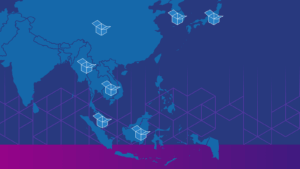The UNCTAD eWeek 2023 was held on December 4 – 8, 2023, in Geneva, Switzerland under the theme ‘Shaping the future of the digital economy’. The event explored key policy areas that must be addressed to build an inclusive and sustainable digitalization at the national, regional, and global levels with the involvement of all relevant stakeholders.
The roundtable, co-organized by the Datasphere Initiative, the Brazilian Data Protection Authority (ANPD), & Lawyers Hub on December 4, 2023, engaged a diverse group of stakeholders in a highly practical conversation on how to measure and leverage creative solutions within sandboxes for data. It particularly focused on developing countries where data poverty and infrastructure challenges pose barriers to equitable and inclusive digital transformation. Participants were invited to share their own best practices on how to design effective sandboxes for data that foster trust and benefit all.
This blog summarizes the key takeaways from the discussion.
Timea Suto, Global Policy Lead Digital Economy, International Chamber of Commerce (ICC), supported that we should move towards horizontal, flexible, and technologically neutral frameworks that responsibly unlock the value of data while guaranteeing the effective protection of people’s privacy and security.
Data underpins and reflects human activities. However, how we unlock the value of data to tackle global challenges is addressed in separate silos and the patchwork of uncoordinated actions creates more problems than it solves. At a time of increasing data localization measures, digital protectionism, and fragmentation, agile and rights-respecting approaches to data-sharing are needed more than ever.
Timea argued that despite the core role of data in facilitating economic activity and innovation, there is a growth of mistrust in data and data flows. In this context, she supported the implementation of policies fostering responsible cross-border data transfers, and the development of regulatory sandboxes to allow for dialogue between stakeholders. Such policies and tools can reinforce trust and boost data-driven innovation.
“To address mistrust and unlock the value of data, there should be a move towards flexible, technologically neutral frameworks,” mentioned Timea.
Risper Onyango, Policy Lead of Digital Economy, at Lawyers Hub Kenya, advocated for the integration of regulatory sandboxes in different sectors, and regions, and emphasized the importance of multistakeholder participation within the sandbox. Sandboxes are seen as an effective tool to handle the nuances around data governance, as shown in the fintech sector, which is leading its implementation.
Risper also pointed out that there is a need to foster inclusivity in international fora, by including the African perspective in these discussions, and stakeholders groups that are often left behind, such as civil society.
“Harmonizing cross-border regulations and practices within the African continent presents challenges due to differing regional and continental structures. Streamlined and coordinated efforts are needed to create harmonized regulations,” shared Risper.
Lorrayne Porciuncula, Executive Director of the Datasphere Initiative, highlighted the necessity to move from a linear approach to a more agile and iterative approach through sandboxes in data governance. Sandboxes provide a collaborative environment for data testing and have the potential to address complex challenges of data governance. In addition, they enable experimentation with new uses, capabilities, and means of governing data.
However, there is still a long way to go before sandboxes are fully embraced to help design data policy frameworks, especially in a cross-border regulatory context. More dialogue, engagement, and investment are needed to fully bring their potential to life. During the session, Lorrayne explored common misconceptions surrounding sandboxes and their potential to tackle data policy issues regulators face. The Datasphere Initiative has previously addressed some myths around sandboxes.
Finally, Ms. Porciuncula shared the plans of the Datasphere Initiative for launching a Global Sandboxes Forum. The project would aim to bring experts and practitioners together to experiment with technical and policy solutions for data governance.
“To tackle these complex issues, we must adopt a more agile approach. The term “sandbox” itself underscores the meaning of a safe space to build, create, and recreate,” said Lorrayne.
Lucas Costa dos Anjos, Data Protection Specialist at the National Data Protection Authority Brazil (ANPD), argued that the use of sandboxes can help in the implementation of regulatory policies by testing them in a controlled environment.
Brazil has a strong tradition in internet regulation and sees multistakeholder participation as an effective way for cooperation for better decision-making. Before launching the sandbox, ANPD opened a public consultation to gather inputs on the regulatory sandbox for artificial intelligence and data protection in Brazil.
Lucas added that transparency mechanisms are essential to build public trust in sandbox initiatives. ANPD plans to externalize and multiply the knowledge obtained from the sandbox to guarantee transparency.
“Multistakeholder engagement is important in sandbox initiatives. In Brazil, the involvement of civil society, academia, government, and private sectors has been recognized as crucial to the success of such initiatives,” said Lucas.
Melody Musoni, Digital Economy and Governance Policy Officer at ECDPM, stated that regulatory sandboxes are beneficial in providing a safe environment to test fintech innovations and propose amendments where the existing framework may not be sufficient. Moreover, sandboxes can propose appropriate adjustments to current policy and legal structures. Melody shared experiences of countries in Africa implementing sandboxes, including South Africa, which set up an effective approach to regulate crypto assets.
However, she pointed out that financial requirements for entering a regulatory sandbox can be challenging for startups and small innovators, and might struggle to raise enough funding to implement them.
“Financial requirements for entering a regulatory sandbox can be challenging for startups and small innovators. Limited funding could hinder their participation, potentially inhibiting innovation in the fintech sector,” stated Melody.
All in all, speakers concluded that sandboxes are an effective instrument for testing and deploying collaborative data solutions within and across borders.
In summary, speakers affirmed that sandboxes serve as an effective instrument for testing and deploying collaborative data solutions within and beyond borders. They emphasized the importance of promoting education, and transparency, engaging in multistakeholder discussions, and facilitating funding to support these endeavors.
- Read the report Sandboxes for data. Creating spaces for agile solutions across borders
- Read about the Datasphere Initiative Global Sandboxes Forum



